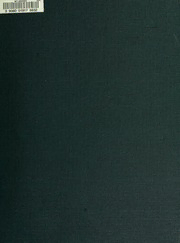
The antebellum tariff on cotton textiles revisited PDF
Preview The antebellum tariff on cotton textiles revisited
MITLIBRARIES 3 9080 01917 6632 'f "'i;rmmimimmmmmi^ /p(fepiiilfiliif piiiliSBii It HI'mJij/ii! I ;'!!};;;;«if//;;/!'ii j , - Hiiiteifilliis Digitized by the Internet Archive in 2011 with funding from Boston Library Consortium IVIember Libraries http://www.archive.org/details/antebellumtariffOOirwi DEWEY Massachusetts Institute of Technology Department of Economics Working Paper Series ON THE ANTEBELLUM TARIFF COTTON TEXTILES REVISITED Douglas A. Irwin Peter Temin Working Paper 00-19 September 2000 Room E52-251 50 Memorial Drive MA Cambridge, 02142 This paper can be downloaded witiiout charge from the Social Science Research Network Paper Collection at http://papers.ssm.com/paper.taf?abstract id=242059 MASSACHJSETTS INSTITUTE ,; OFTECHNOLOGY OCT 3 2000 L.„„„._„„, LIBRARIES Massachusetts Institute of Technology Department of Economics Working Paper Series ON THE ANTEBELLUM TARIFF COTTON TEXTILES REVISITED Douglas A. Irwin Peter Temin Working Paper 00-19 September 2000 Room E52-251 50 Memorial Drive MA Cambridge, 02142 This paper can be downloaded without charge from the Social Science Research Network Paper Collection at http:/7papers.ssm.com/paper.tat7abstract id=242059 The Antebellum Tariffon Cotton Textiles Revisited Douglas A. Irwin Peter Temin Department ofEconomics Department ofEconomics 6106 Rockefeller Hall 50 Memorial Drive Dartmouth College MIT Hanover, NH 03755 Cambndge, MA 02142 and NBER and NBER July 20, 2000 Abstract Recent research has suggested that the antebellum U.S. cotton textile industry would have been wiped out had it not received tariffprotection. We reaffirm Taussig'sjudgment that the U.S. cotton textile industry was largely independent of the tariffby the 1830s. American and British producers specialized in quite different types oftextile products that were poor substitutes for one another. The Walker tariffof 1846, for example, reduced the duties on cotton textiles from nearly 70 percent to 25 percent and imports soared as a result, but there was little change in domestic production. Using data from 1826 to 1860, we estimate the responsiveness ofdomestic production to fluctuations in import prices and conclude that the industry could have survived even ifthe tariff had been completely eliminated. Acknowledgments We thank participants at the DAE meeting ofthe NBER Summer Institute for : helpful comments.
